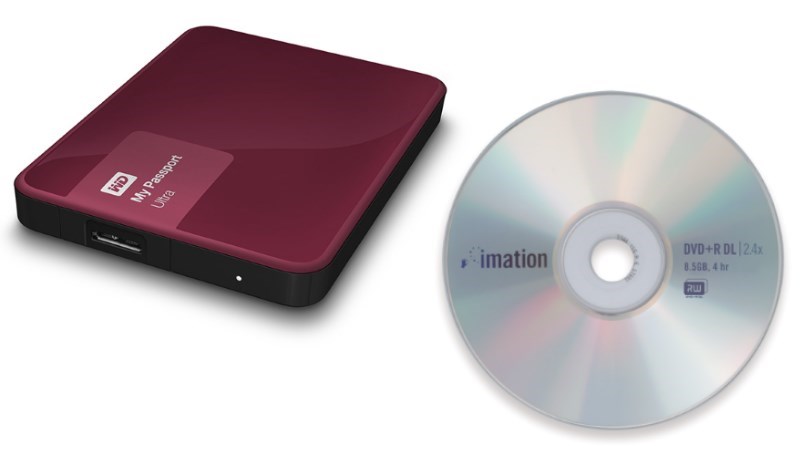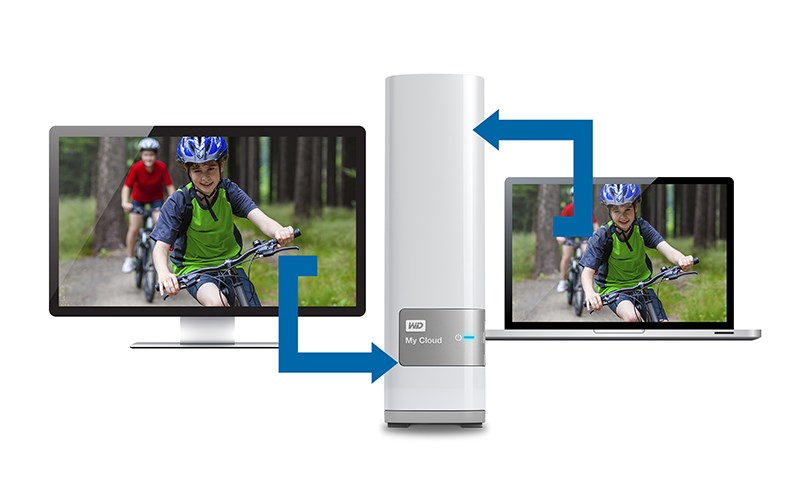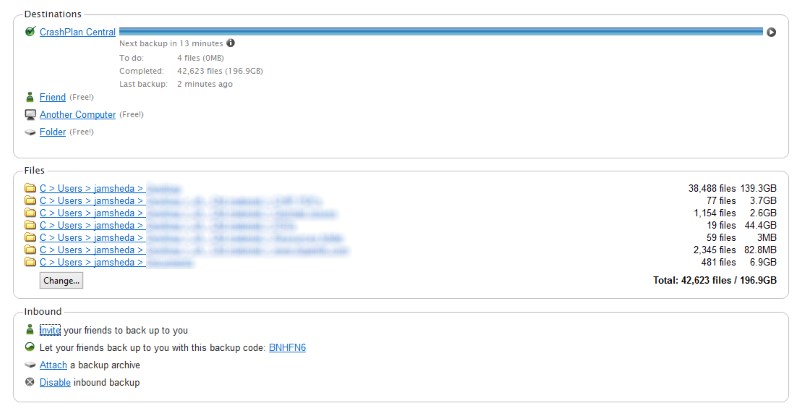It had to happen. Like everyone else, I had only the best intentions. I
considered myself and my methods to be careful enough. But I also
thought making backups was tedious and that I could always do it later.
Then a hard drive stopped working - it was perfectly fine one day and
then refused to work the next. I lost a lot of my oldest data - school
and college projects, photos, little snippets of things saved from all
over, and probably lots of useless junk as well. I had copies of some of
it scattered around on old CD-Rs and saved as email attachments, but I
can't even remember how much there was. It's a pity - I used to enjoy
browsing through that stuff once in a while.
There's little solace in
the fact that many people have had this same experience. I've heard
horror stories and have been called into doing emergency tech support
for countless friends, acquaintances, neighbours, distant relatives and
even strangers, who took their hardware and software for granted, never
imagining their data could be lost. One was a photographer who had
accidentally erased a CF card full of a client's event photos. One was a
friend's mother who had given her iPad in for repairs, not realising it
would come back wiped clean.
Then there are situations in which
you know you can't do anything after the fact. One friend's bag got
stolen in a crowded train; he lost his laptop and the portable hard
drive with all his backups on it. Another pulled out an old spindle of
DVDs only to see that they had physically deteriorated.

Everyone
makes mistakes. Disasters do happen. We just need to plan for them. Some
people make backups only as a safeguard against accidental deletion, or
only of documents they need to refer to older versions of. The friend
whose bag was stolen was safe from one type of disaster, but not many
others. Many people make copies of their data manually, at irregular
intervals, but don't choose the right medium or location. Many back up
the photos on their PCs but not the ones on their phones. Many lose
track of what is where, or leave it to someone else to manage. Many
simply don't bother.
People also assume data can be recovered -
very often it can't, or it's incredibly expensive and time consuming to
do so. It used to be easy to pop a hard drive out of a dead computer
(assuming the drive itself was fine), but many of today's laptops and
tablets don't offer us that layer of safety. Your data and the drive
it's on might both be fine, but there might be no way to get it off a
dead device.
I've come to realise a couple of things. First and
foremost: one copy is not a backup. You need multiple backups,
preferably created and updated automatically, and they need to be stored
on different media and in different places. Second: it's going to take
at least some time and at least some money. There's no easy way around
it; this is a fact of modern digital life.

Here's the ideal
strategy. First, you have to know exactly what you have, where it all
is, and how much of it is irreplaceable. Your most important files can
be divided into two categories: those that are updated at intervals,
such as financial statements, and those that aren't, such as scans of
important old documents. This will help you keep track of what you need
to do and simplify your work. No matter which storage medium you choose,
one copy should be in a fire-proof safe, and another (maybe less
frequently updated) should be stored offsite. You can decide whether or
not to use online services to store copies of these, depending on the
level of security you need.
Following that, you need to identify
all the files you have created yourself, which can never be replaced if
lost. That includes everything you do for work and for creative hobbies,
all your digital photos and videos, email archives, game saves,
software customisations, Web bookmarks, etc. Lots of programs now save
these things to their own online services so that you can move between
devices easily - remember to sign in if you choose to use them, and
remember the passwords! Online services that let you specify folders to
monitor work best for such files, but a complete dump to an external
hard drive once in a while can't hurt.
You can always re-download
music, movies, games and TV shows so those don't need to be backed up as
diligently. Services such as iTunes and Steam show all your purchases
so you can track them, but you need at least a list of files you've
obtained ad-hoc over the years.

As far as the backup medium is
concerned, you have many choices. Optical media is typically short-lived
and you might not be able to retrieve data in a pinch, so that's
becoming less and less sensible. Hard drives are much more reliable but
should never be your sole backup medium - and you need to treat them
with care - never eject them unless it's safe to, and store them safely
as well. Network-attached drives and private servers should have clean,
reliable power. Solid-state drives could be expensive, and certain
models have been shown to deteriorate when stored in less-than-ideal
conditions.
Web services are increasingly becoming the best and
most logical backup destinations. You have loads of options. As
mentioned, lots of software now comes with an online component that
backs up at least your settings if not your work. There are those with
specific purposes such as Flickr for photos, which is really easy to use
and offers loads of space. Some are specific to devices or companies,
such as iCloud. There are services more attuned to syncing, including
Dropbox and OneDrive. Then there are dedicated bulk backup services, of
which Crashplan and Backblaze are the best known.
You might be
able to get by with the free tiers of some of these services, but they're all
really worth the cost of a decent subscription. Many offer unlimited
space for a small fee, which will come to less than the cost of a few
hard drives in the long run. The best part is you can back up devices of
all kinds and always have all your data available to you. There's no
worry about physical drive failure, because data is distributed and
duplicated at the service's backend, and their hardware is a lot more
robust than ours. Finally, you're safe from local disasters.
Backing
up data does take time and effort, but it's like an insurance policy
that you resent paying for until you need it. With the variety and
effectiveness of services available today, no one has any excuse not to
back their stuff up. You should never have to lose a precious memory or
hours of hard work. Make a plan. You know you need to. One day in the
near or distant future, you will either be sobbing that you didn't, or
thanking your lucky stars that you did.
For the latest tech news and reviews, follow Gadgets 360 on X, Facebook, WhatsApp, Threads and Google News. For the latest videos on gadgets and tech, subscribe to our YouTube channel. If you want to know everything about top influencers, follow our in-house Who'sThat360 on Instagram and YouTube.
Further reading:
Backblaze,
Crashplan,
Dropbox,
Google Drive,
backups,
data,
data loss,
data loss prevention,
data recovery,
hard drives,
iCloud,
software
 Adobe Creative Cloud Bug Can Delete Files on OS X Computers15 February 2016
Adobe Creative Cloud Bug Can Delete Files on OS X Computers15 February 2016 This Cloud Storage Service Will Send You a Copy of Your Data on a Hard Drive for Free27 January 2016
This Cloud Storage Service Will Send You a Copy of Your Data on a Hard Drive for Free27 January 2016 Backblaze's Cheap Cloud Storage Service to Take on Amazon, Google, and Microsoft23 September 2015
Backblaze's Cheap Cloud Storage Service to Take on Amazon, Google, and Microsoft23 September 2015 Seagate 4TB Drives More Reliable Than 3TB; HGST the Safest: Backblaze22 January 2015
Seagate 4TB Drives More Reliable Than 3TB; HGST the Safest: Backblaze22 January 2015 Seagate hard drives are the least reliable, says BackBlaze13 February 2014
Seagate hard drives are the least reliable, says BackBlaze13 February 2014















